
 Netskope Global Technical Success (GTS)
Netskope Global Technical Success (GTS)
Google Search AI Mode - Block Web Access
Netskope Cloud Version - 130
Objective
Google Search AI Mode - Block Web Access
Prerequisite
Netskope SWG or NG-SWG license is required
Context
Consider a Microsoft Copilot customer wishing to disable Google AI Mode and AI Overview through Netskope. This article explains how to achieve this business use case.
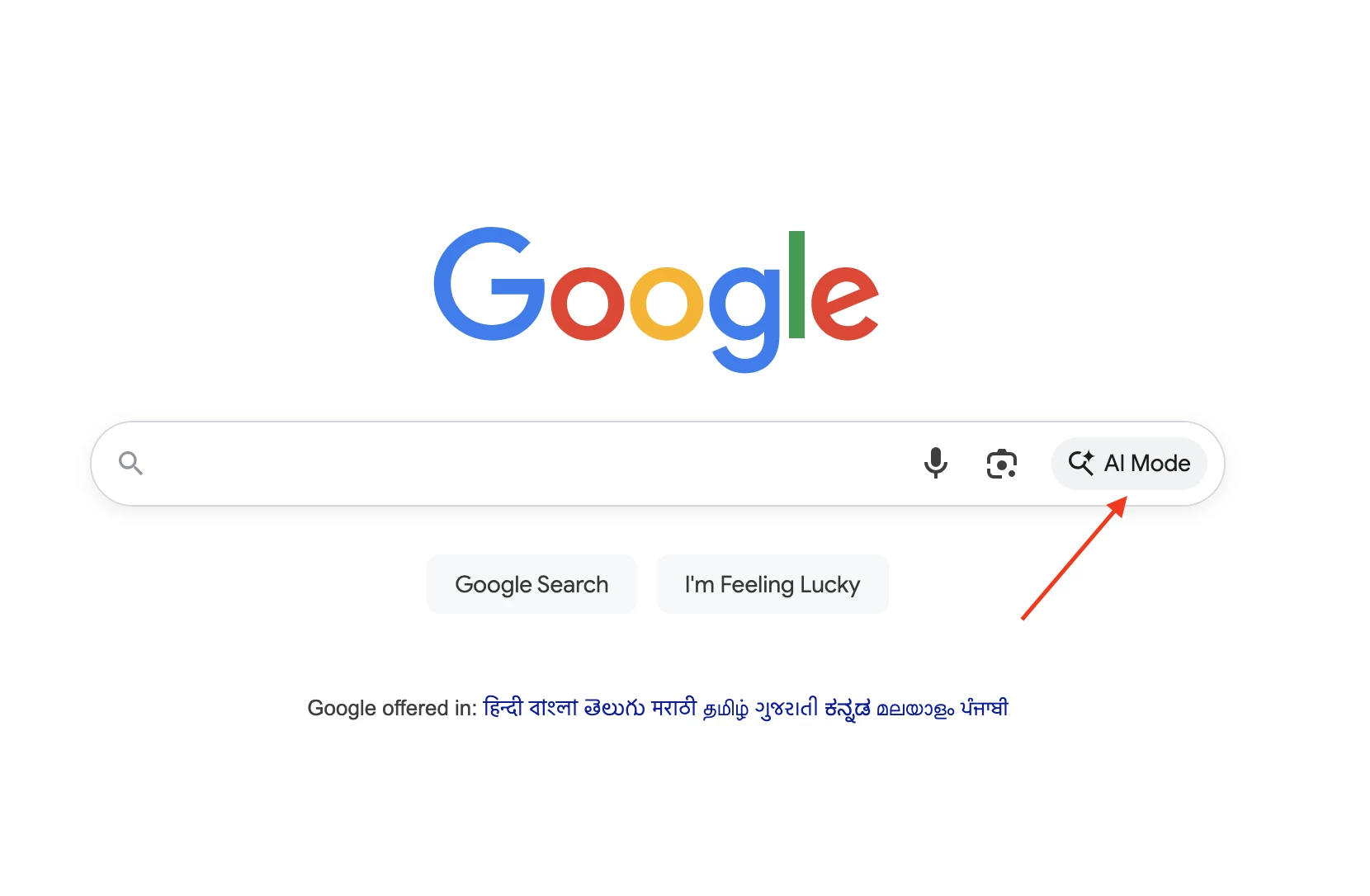
And
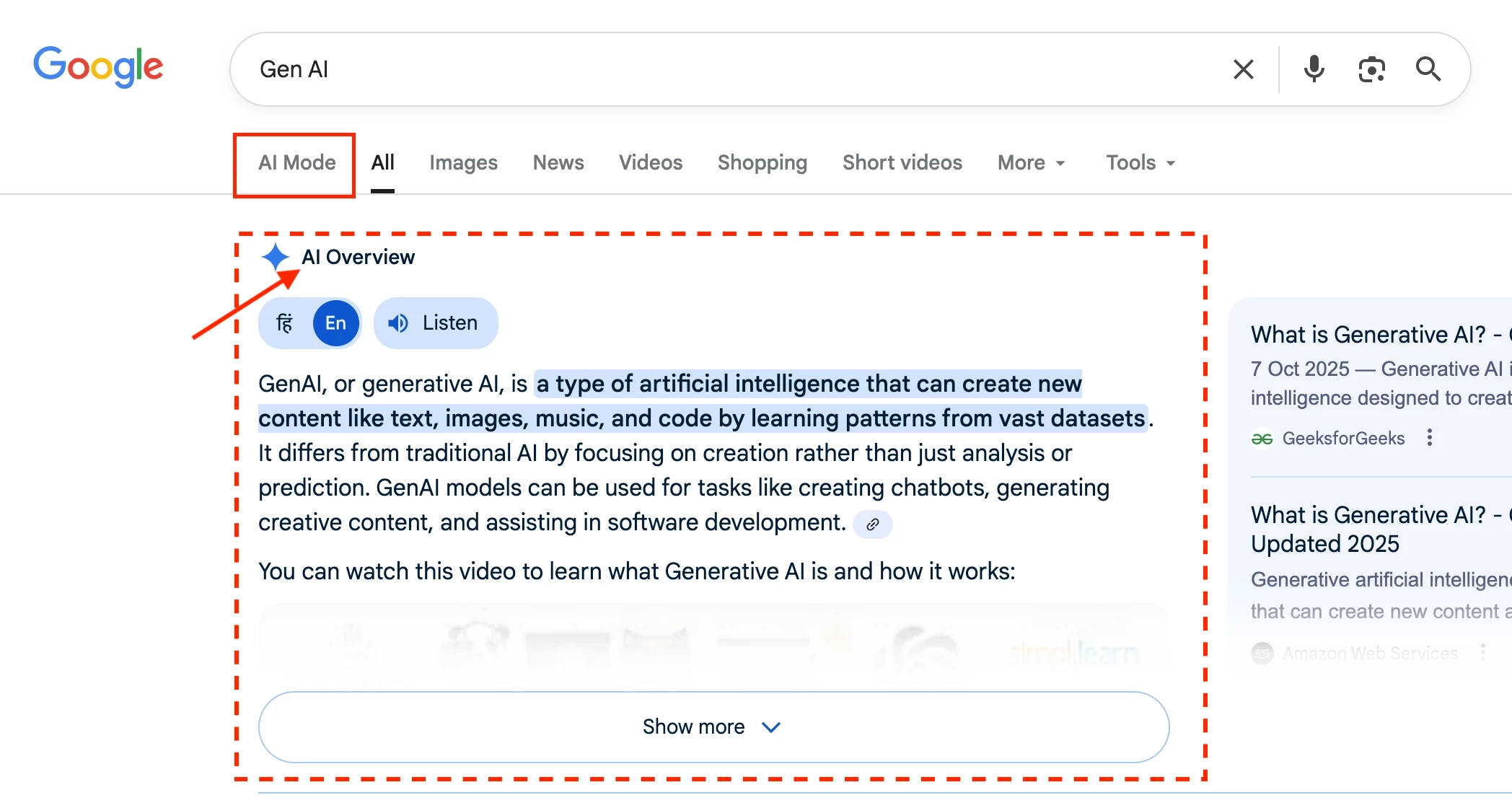


Author Notes
- To learn how to block Google Search AI Overview, review - Link
- To learn how to block Google Search AI Mode , continue reading
Do You Know?
- Google has its own AI chatbot — Google Gemini, and Netskope provides a predefined cloud app connector for it.
- Using this connector, customers can control the following activities within Google Gemini through Netskope.
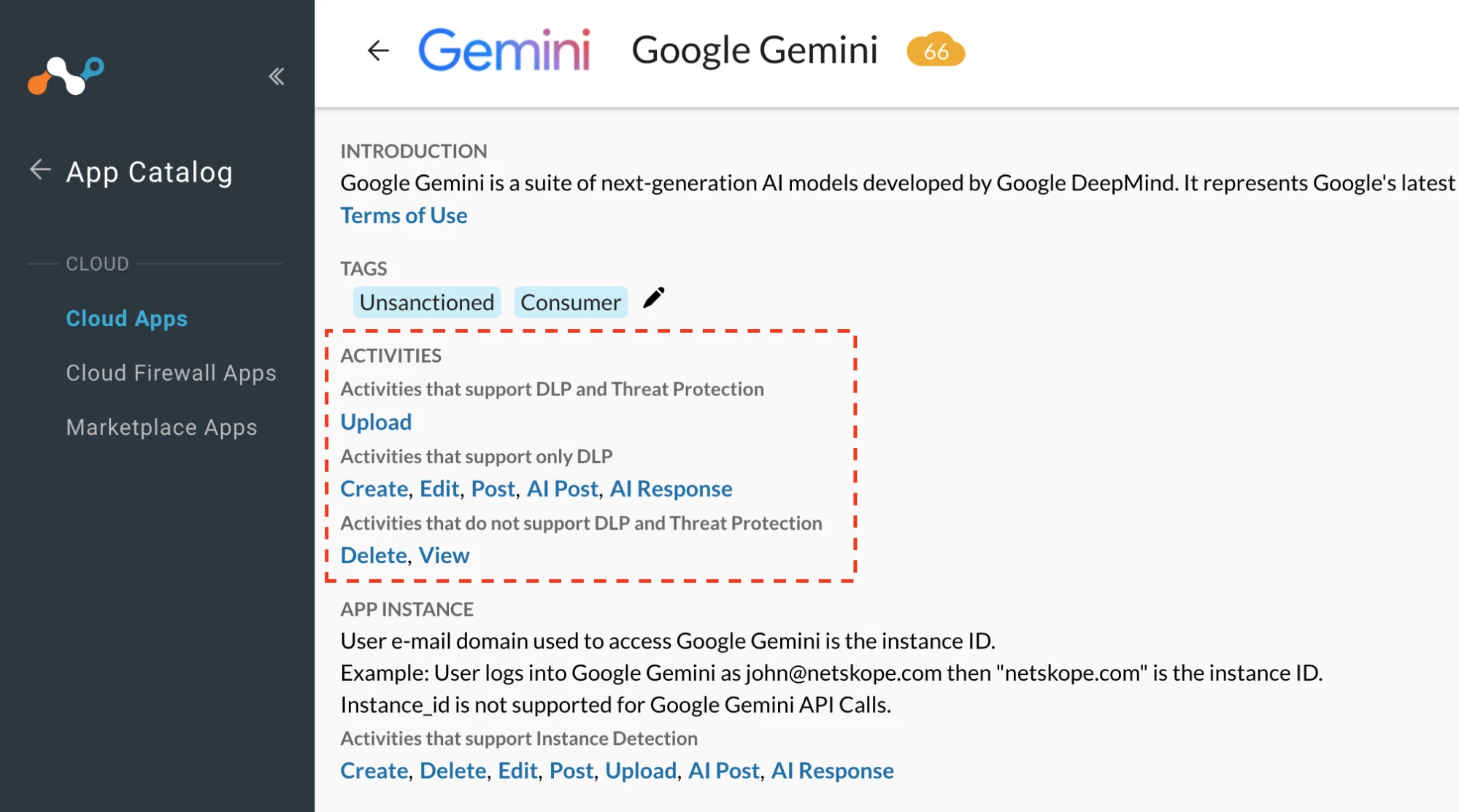

- In May 2025, Google introduced the AI Mode feature on the Google Search page.
- Google search AI Mode works in a different way. When you access it the traffic does not route to gemini.google.com
Ref.




- Request URL
- If you look closely at the request URL, you will notice the keyword ‘udm=50’
- UDM stands for Unified Data Model. The UDM parameter directly controls how the Search Engine Results Page (SERP) is formatted and which types of results are prioritized. While Google has not published an official or complete list of the UDM values it uses, below is a list of a few known UDM values used by Google identified through research and observation.
| UDM Value | Search Mode / Result Type |
| UDM=1 | Places (Local Business Results) |
| UDM=2 | Images |
| UDM=3 | Products (Shopping) |
| UDM=5 | Lodging (Hotels) |
| UDM=6 | Learn |
| UDM=7 | Videos |
| UDM=8 | Jobs |
| UDM=12 | News |
| UDM=14 | Web (Classic organic blue links, no AI Overviews) |
| UDM=15 | Attractions / Things to Do |
| UDM=18 | Forums / Discussions |
| UDM=28 | Shopping |
| UDM=36 | Books |
| UDM=37 | Products |
| UDM=48 | Exact Matches |
| UDM=50 | AI Mode (Gemini/AI Overviews Coverage) |
| UDM=56 | Cleaner Results (simplified page, possibly for embedding) |
- So, technically, to block Google Search AI Mode, we need to apply controls on transactions containing udm=50
Configuration
Step 1: Create a custom URL category
Path: Netskope Tenant UI >>> Policies >>> Profile - - - URL Lists
Regex: .*www.google.com.*udm=50.*
Note: If you do not see the regex option under the New URL List, a backend flag needs to be enabled on your Netskope tenant. The flag name is exact_regex_url_list_enabled. Please raise a case with the Netskope Product Support team to have this flag enabled.
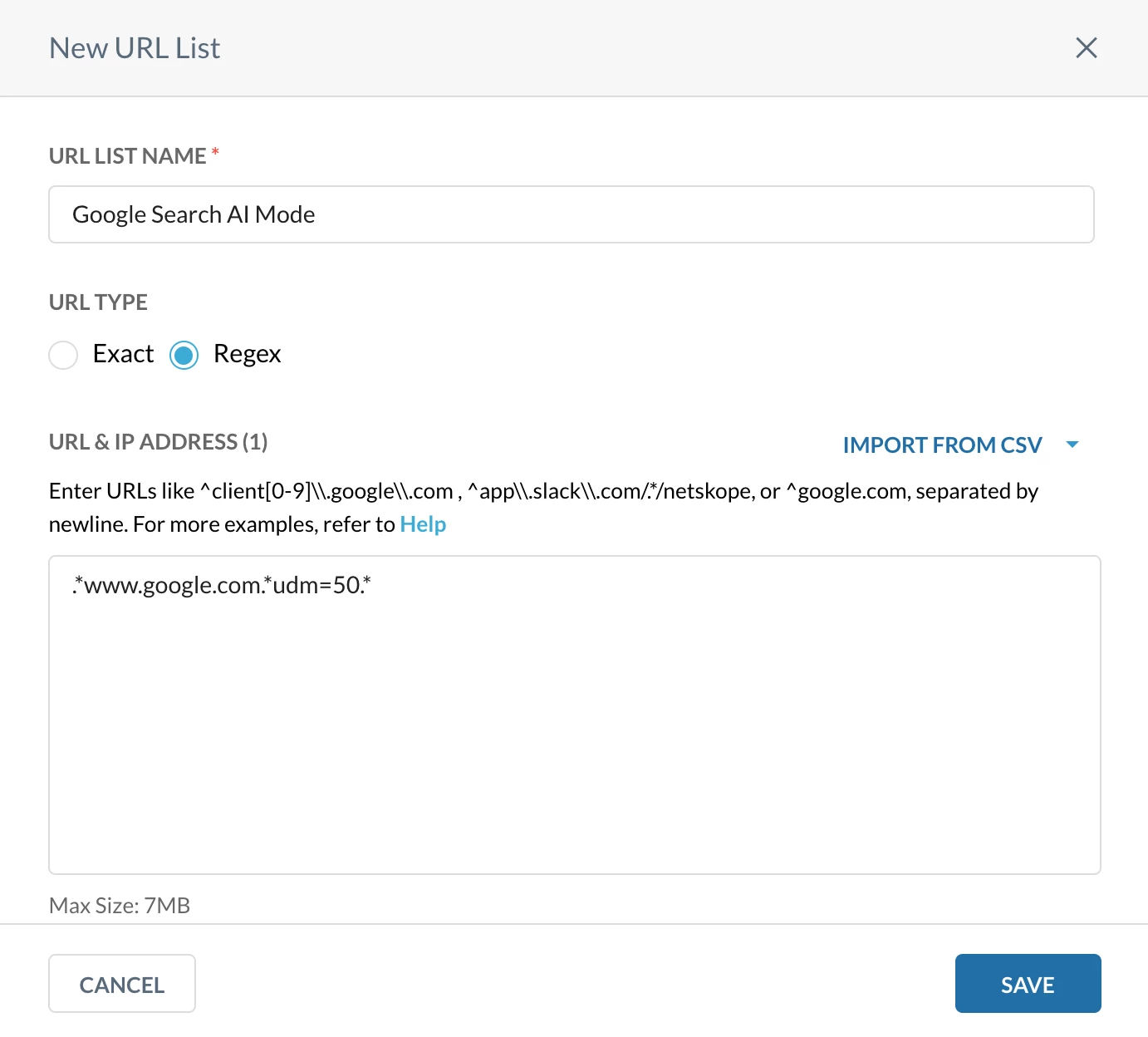

Path: Netskope Tenant UI >>> Policies >>> Profile - - - Custom Categories
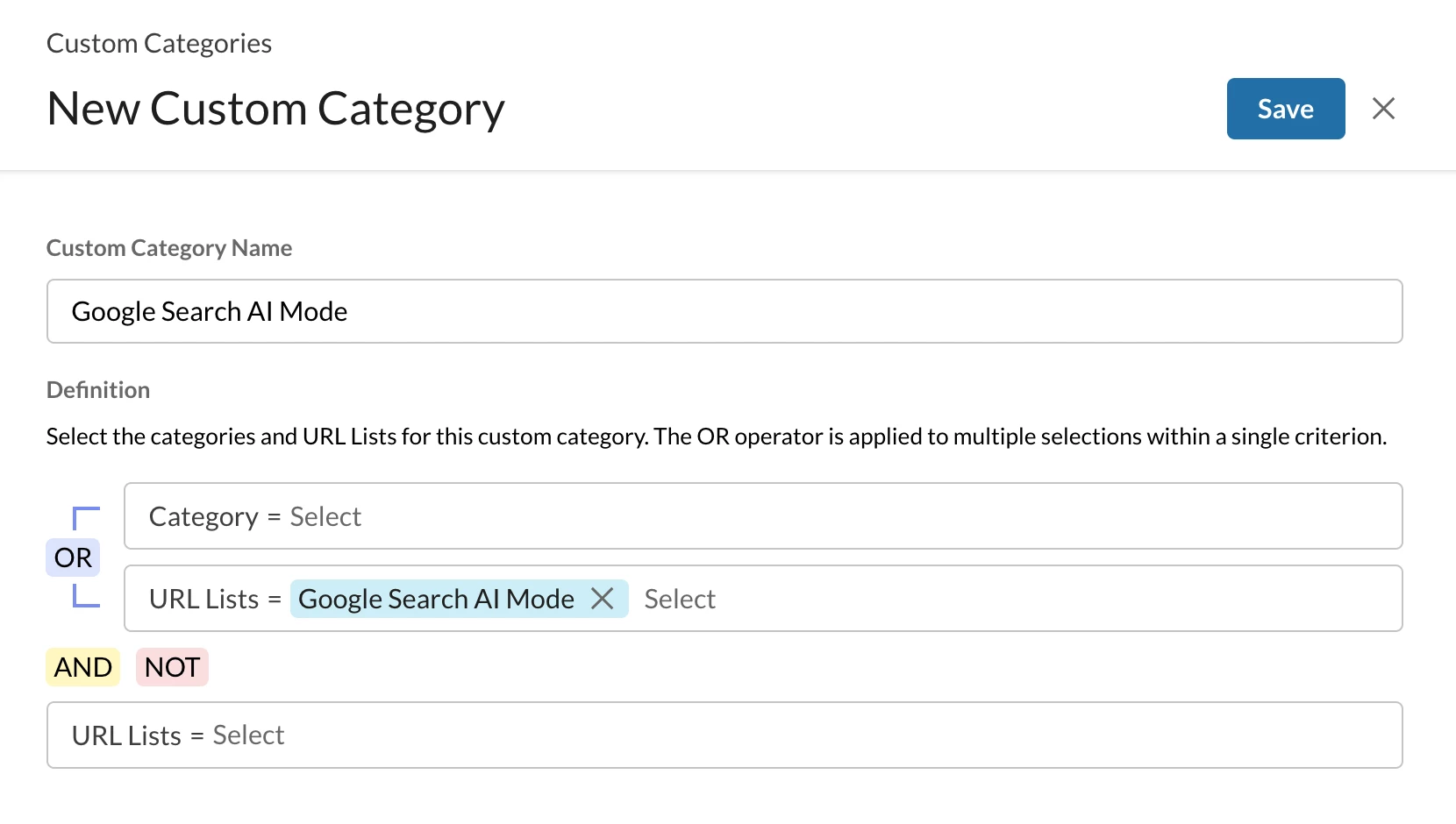

Step 2: Realtime protection policy
Path: Netskope Tenant UI >>> Policies >>> Real-time Protection >>> New Policy
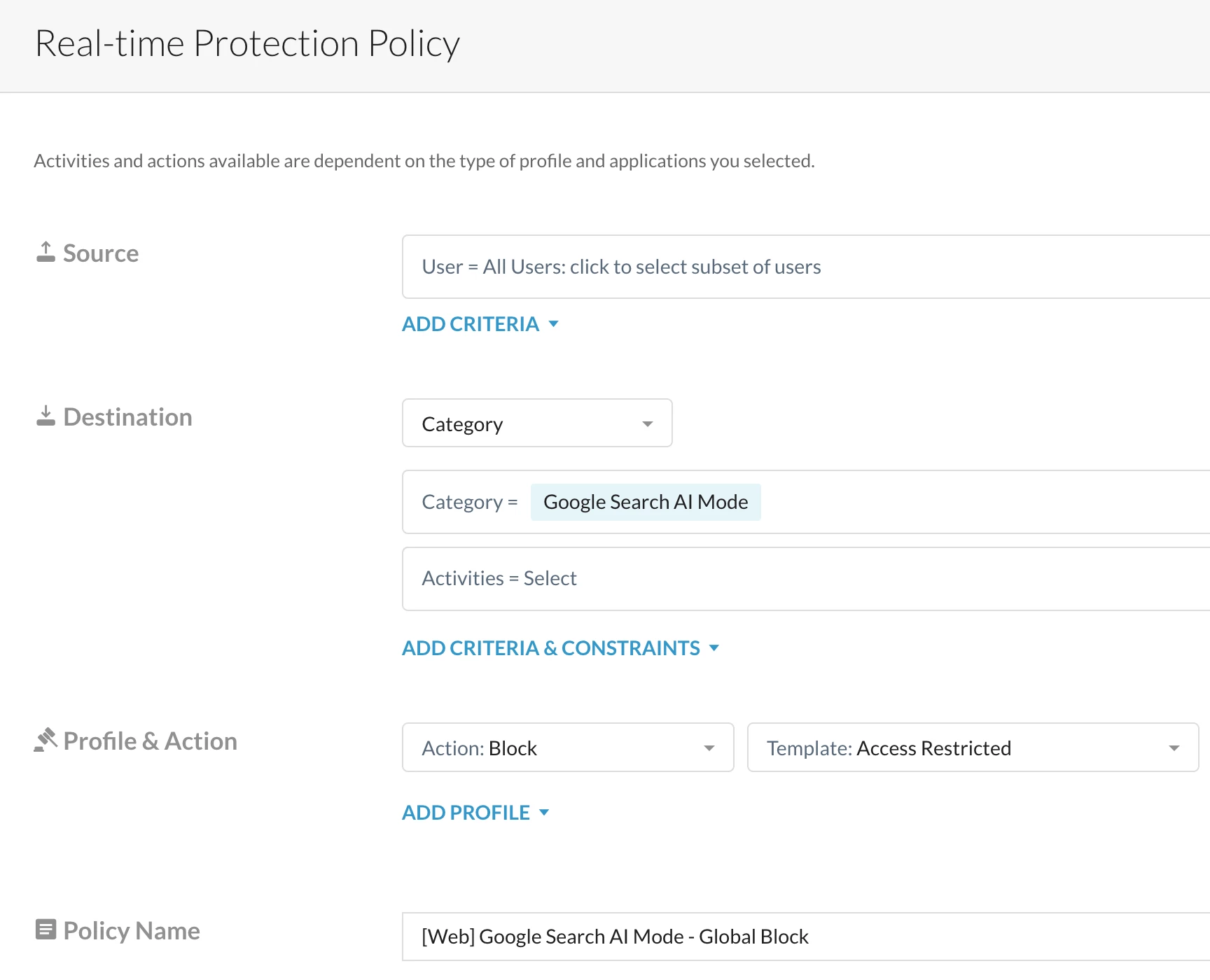

Verification
Access Google Search AI Mode


Note - User Notification format used above Link
Author Notes
- The solution proposed in this article depends on the UDM value. Currently, Google uses UDM 50 for its Generative AI services; however, this value may change or new ones may be added in the future. In such cases, this article will require an update.
- Additionally, the Netskope Product Management team is working on a product enhancement to include Google Search AI Mode under the predefined web category Generative AI. Once implemented, controlling Google Search AI Mode will become easier.
- This article will be updated as new information becomes available.
Terms and Conditions
- All documented information undergoes testing and verification to ensure accuracy.
- In the future, it is possible that the application's functionality may be altered by the vendor. If any such changes are brought to our attention, we will promptly update the documentation to reflect them.
Notes
- This article is authored by Netskope Global Technical Success (GTS).
- For any further inquiries related to this article, please contact Netskope GTS by submitting a support case with 'Case Type – How To Questions'.







